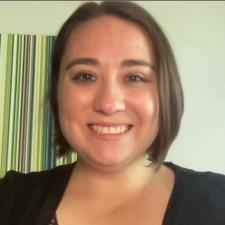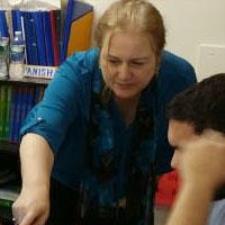
What kind of assessment do educators do before before beginning private tutoring of a student?
Various ages, abilities and disabilities and subject matter call for flexibility in tutoring, what are some tools a tutor might use to make an effective assessment and know they are going to work well with a new student?
8 Answers By Expert Tutors
Frances S. answered • 10/14/19
MFA in classical drawing techniques and contemporary approaches
In my Masters level training as an Art Therapist I Became practiced in performing an array of assessment instrument for evaluating psychological, visual-motor and creative/adaptive functioning. We were also trained in “observational assessment”; determining a person’s strengths, weaknesses, aptitude’s and preferences based on observing general behavior and direct interactions with art materials. In my tutoring practice I typically do an informal observational assessment in the first lesson to get a feel for the individual student. I also present a step by step facilitated activity to see how the new student responds to directions and suggestions. My experience with hundreds of special needs children growing despite various disabilities and conditions informs my observations and my directives. I see ongoing assessment as a collaborative endeavor that allows for profound levels of customization of activities within lessons. I work with visual exercises that support cognitive development in general but also address specific areas like fine motor control, visual-motor coordination, frustration tolerance, problem solving, peak or optimal performance, or flow which makes the task gratifying and self-reinforcing...to name a few. Often growth in these foundational areas is generalized to other subjects and overarching progress unfolds. For example, drawing exercises involving the orientation of forms has been observed to help dyslexic students with grapho-motor skills for writing and perceptual skills that help in reading. Working with the creative gifts that tend to accompany dyslexia supports the development of adaptive strategies and confidence in the ability to learn in personal ways, building a track record of success.
Regarding formal assessments, I provide these as a separate service for instances where families seek in-depth supplemental information to add to educational evaluations performed in schools in the process of identifying needs and creating IEP’s. These formats have been proved very helpful in better understanding the whole child, including underlying dynamics and perceptions that may either help of hinder progress. Plus the creative output from the evaluation often helps the child’s team understand individual needs and problematic behaviors more fully as the communicative, needs-asserting, gestures that they are.

Michelle M. answered • 05/12/22
Certified Handwriting Specialist
I have a background in Occupational Therapy and am also a Certified Handwriting Specialist. I believe assessment is SO important for gaining an understanding of the student's level and identifying the underlying issues. Teaching a new skill should be based on creating a strong foundation and then building up.
I utilize the Check Readiness Assessment by Handwriting Without Tears for my Pre-K students to measure 7 foundational readiness and writing skills. For kids in kindergarten and older I use The Print Tool which I have been trained to use. The Print Tool measures the 8 underlying components of handwriting.
Helen M. answered • 05/08/20
Effective & Innovative-Experienced Special Educator-Lang Arts, Reading
As a tutor and experienced special education teacher, I would ask if the student has had any formal diagnostics that I could review prior to beginning the tutoring process. The reason for that is because formal evaluations (i.e. neuropsychological, educational, psychiatric, etc.) contain specific measurable details that are only discovered during the testing process and those details provide great insight into the student's cognitive and social/emotional learning processes. That, in addition with anecdotal observations (behavior, presentation, demeanor, etc.), which are characteristics that can be observed, can be combined to determine if I have the necessary skill set to benefit the student.
Second, establishing rapport with the student is paramount to having a successful tutor/student relationship. Establishing those connections cannot be assessed prior to the onset of the tutor/student relationship; it is something that is disclosed over time. Trust and empathy are developed over time; the greater the bonds, the greater the tutor/student relationship.

Bryant M. answered • 03/16/20
Experienced Special Education Tutor EC-12
I like to keep these basic and informal as possible especially if we are meeting each other for the first time. I prefer to focus upon building a relationship at the first initial interaction. This can vary depending upon the student, but it is essential that we try to make a connection with the student, to determine compatible fit. Rathers its speaking, questioning, listening, playing, or just quietly bonding, the initial introduction can be vital to the beginning of efficient and effective tutor/ student relationship. Ideally you want to have a plan of action that addresses student interest ex. questioning age, date of birth, hobbies, favorite subject, favorite teachers, likes, dislikes, career, friends, frustration, tolerance, fine motor skill. By showing passion, sympathy, and interest in gathering students basic information, abilities, strengths and weaknesses can set the stage for a great relationship, student learning, and student interest of choosing an ideal tutor.
Eve N. answered • 11/22/19
Inspirational Tutor Who Loves Sharing The Magic Of Learning
Typically a tutor would not rely on assesments that other formal educators and those in the mental health field would rely on. In a tutoring session however, the student can be assessed formally, but it tends to be based more on informal conversation and questions geared towards determining where the student is at in their current knowledge base and maybe what struggles they have had in learning the material.
With ADHD/ADD students, having something hands on with more immediate rewards helps keep concentration and focus, because with ADHD/ADD, beyond the inability to focus on things that are not immediately stimulating, they have a tendency to hyper-focus on things that are, such as video games or reading, or anything else that interests them, therefore granting immediate stimulation. By creating lesson plans that are hands on, interactive, and giving them breaks to talk about or work on something else, or by creating a lesson plan that they can directly relate to (i.e if they are interested in skate boarding, relate the lesson to skateboarding), you can help the ADHD/ADD student to retain more of the knowledge.
With something like dyslexia, having them practice physically writing out letters can help their brains create connections about the orientation of the letters and in turn helping them start to function with reading more fluently.
With any student, having a routine will help ingrain learning objectives.

Cecil B. answered • 11/17/19
ADHD TUDOR
As a speech-language pathologist, I looking at visual-motor intergration and figure-ground testing. I also prefer to see how a student functions in daily life regarding written language, executive function, speech and language constructs.

Jonathan S. answered • 10/24/19
Math Tutor, Substitute Teacher, & Behavioral Health Consultant
In my experience, formal assessments are not done with tutoring services, as most tutors will indirectly assess a client's needs based on talking to them (or family if a child), combined with direct observations of deficits and needs. When talking with a client most tutors will want to know specific academic issues, along with any behavioral concerns. For a client diagnosed with ADHD, or general concentration and attending concerns. they will implement a lesson plan that focuses on short durations of new material, with an emphasis on retaining the information.
In regards to formal assessments, they are typical reserved for other services, such as ABA services. Although this answer will vary by company and funding source, they often consist of a combination of direct observations, informal interviews, and administered formal assessments, such as an ABAS-3, WISC-IV, ABLLS-R, VB MAPP, or AFLS. Once a deficit is indicated, tutoring is sometimes recommended to help with academic deficits associated with the formal diagnosis.

Rosemary V. answered • 10/12/19
NY lic w MS Art Therapy w unique skills: K-Adults, Sp. Needs, ESL, Art
Aa a certified teacher I felt much more able to do assessments after obtaining a Masters in Science in Art Therapy. In our course of studies I learned to do psychological assessments and developmental assessments, and gained an understanding of learning blocks that stem from PTSD or other early childhood medical issues. After these studies, and seeing how effective assessments were, I delved more into these for the more challenged students. If they are academically accomplishing some school assignments, I ask to see problematic school projects that were struggled through, and I look at successful school work. I ask parents about the child's early milestones and talk with the student who is having difficulty reading or writing about their likes and dislikes; I learn what interests them and what they react against. I may ask them to write or read brief sentences. Very rarely, I catch concerns that are more involved than what tutoring can support and refer them to other specialists. My own assessment and tutoring approaches vary from student to student and assessment continues over the course of our working together. My support ranges from homework support to possibly using therapeutic tools to overcome learning blocks. My students have overcome serious learning blocks with some extreme cases that include overcoming illiteracy due to dylexia and even have pushed a non-verbal moderate autism 11 year old to speak and become a member of his public school classes as a mainstreamed student. The comments of my clients are as varied as my therapeutic tutoring skills.
Still looking for help? Get the right answer, fast.
Get a free answer to a quick problem.
Most questions answered within 4 hours.
OR
Choose an expert and meet online. No packages or subscriptions, pay only for the time you need.






Jayne K.
I use the Alphabetic Phonics BenchMark Summary Sheet to figure out what skills and levels the student has.12/11/19